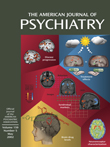The Real World Guide to Psychotherapy Practice
This courageous book is less a guide than a time capsule from our besieged profession at the millennium and a plea for keeping clinically informed humanism in the mental health practitioner’s armamentarium. Daring to be incomplete and provisional (like real life), it presents psychotherapy not as a disembodied system of knowledge but as a changing part of a changing culture.
Real worlds are particular in space as well as time, and this book comes from the Boston area. Massachusetts is among the most affluent of the United States, and its major metropolitan area continues to support a thriving private practice community of analytically oriented therapists. On the other hand, the state and the health insurers that do business there have done a better-than-average job of dismantling mental health care as we used to know it for those citizens who need any help paying for it. Harvard’s Cambridge Hospital sits astride these two aspects of the local scene, and so the writers of this book, who are affiliated with Harvard, know only too well the contrast between what treatment at its best can be and what it often is.
The book falls into two (intermingled) halves. The chapters by Havens, Sabo, and James Gustafson, taken together, approach being an integrated textbook on modern, dynamically informed, eclectic psychotherapy. Havens’s contributions (one on forming effective relationships, one on treating psychoses, and three commentaries) are lucid and deserve every bit of the praise they have received. The relationship piece in particular distills some of the best of his book Making Contact(1). Havens is one Harvard treasure who has continued to get his hands dirty in the day-to-day training of psychiatric residents, and it shows. I salute his decision to throw his energy into a mainstream project like this book, whose influence on psychiatry as a whole will be greater than that of one more literary/philosophical book about therapy for a smaller audience of initiates. Still, when one of our greatest teachers feels the need to advise mental health practitioners to find common interests with their patients (p. 18), I wonder whether it is already too late. Didn’t they go into the business to get to know people in the first place?
Alex Sabo’s chapter on the relational aspects of psychopharmacology (written with Bliss Inui Rand) and his chapter on working with borderline patients reflect the sort of humble and practical psychiatric wisdom that has gotten lost in today’s drone of drug marketing and academic science-as-usual. I want to hear much more from this author, who recalls to me the best of my own attending supervisors back in residency—true physician/therapists.
James Gustafson’s chapter, ostensibly on brief psychotherapy, is in fact a cogent abstract of the “dilemma theory” he has spent much of his career, and several books (2, 3), developing. Gustafson presents a world view or meta-theory of the entire psychotherapeutic enterprise that I have found original and important enough to study and write about at length (4), so I am not the best judge of how well this particular summary comes across, but it appears entertaining and accessible enough to lure readers into making a more thorough acquaintance with Gustafson’s work.
The other half of the book is a loose collection of topical essays. There is one on group work with violent men, one on chronically traumatized patients, one on dialectical behavior therapy (good but slightly out of place here owing to its behavioral science tone), and one on emergency situations. The piece titled “Psychotherapy With People Stressed by Poverty,” by Janna Malamud Smith, stands out as both helpful and moving. Alfred Margulies’s chapter on “Our Psychoanalytic Legacy: The Relevance of Psychoanalysis to Psychotherapy,” otherwise admirable, concludes with a prediction that psychotherapy’s future will part company with the “neurological subspecialty” of psychiatry, which will be “largely irrelevant” to it (p. 311). Must we sell the farm so soon? Most of the other contributions to this volume, in fact, try to demonstrate the continuing mutual relevance of traditional psychotherapy and medical psychiatry.
Since history isn’t over yet, the role this time-capsule collection will play in the ongoing story of psychotherapy is uncertain. If it succeeds in helping save the practical psychodynamic/eclectic therapy developed largely by North American psychiatrists over the last half-century, this will be in part because it draws people back to the work of Havens and Gustafson and because its success encourages the likes of Sabo to write more. If, on the other hand, the objectifying forces of the market prevail, at least this book will ensure that the great era of psychotherapy ends with more bang and less whimper. For now, The Real World Guide to Psychotherapy Practice helps those of us in active practice by maintaining a humane alternative consensus within which we (and our patients) can operate. It defends our identity as psychotherapists rather than mindless cogs in the “health care delivery” machine.
1. Havens L: Making Contact. Cambridge, Mass, Harvard University Press, 1986Google Scholar
2. Gustafson JP: The Dilemmas of Brief Psychotherapy. New York, Plenum, 1995Google Scholar
3. Gustafson JP: Brief Versus Long Psychotherapy. Northvale, NJ, Jason Aronson, 1995Google Scholar
4. Genova P: A worldview from brief therapy. Psychiatric Times, May 1996Google Scholar



